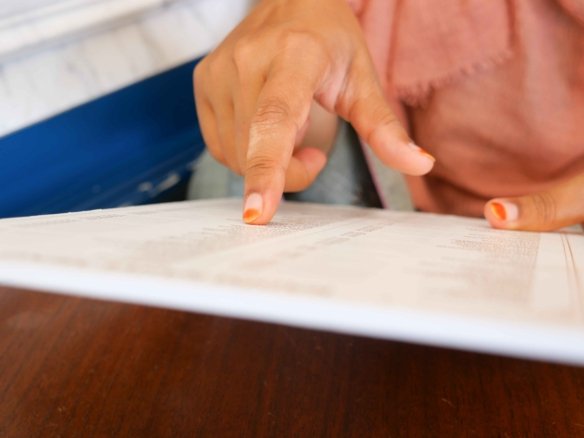Many investors overlook tax deed auctions, yet these events offer a treasure trove of opportunities for those willing to learn the rules and navigate the complexities. If you’re looking for ways to build wealth through real estate without the traditional hurdles, tax deed auctions can be a golden path—if approached correctly.
What Makes Tax Deed Auctions So Lucrative?
Tax deed auctions exist because property owners fail to pay their property taxes. When taxes go unpaid for a certain period, counties have the right to auction off the property to recover their losses. Unlike tax lien sales, in a tax deed sale, the actual property is sold, not just the lien. That means you can acquire full ownership of a property, often for a fraction of its market value.
Do Your Research Before You Bid
Success at tax deed auctions starts long before you place your first bid. Research is everything. Know the rules of the specific county holding the auction, understand the bidding process, and most importantly, dig deep into the history of the properties you’re interested in. This includes ownership history, potential liens, physical condition, and zoning regulations. Your due diligence is your best defense against costly mistakes.
Understanding County Auction Rules and Processes
Every county operates slightly differently. Some conduct auctions in person, others online. Some require deposits; others have different timeframes for payment after the auction. If you assume one auction will run like another, you’re setting yourself up for failure. Visit the county’s official website or contact their tax collector’s office for the most up-to-date information.
Don’t Get Emotional About the Property
One of the easiest ways to lose money is by becoming emotionally attached to a property. Remember, this is an investment. You’re not buying your dream home—you’re buying potential value. Be willing to walk away if the price goes above what you’re comfortable with. Always have a bidding ceiling based on calculated returns, not excitement.
Drive by the Property When Possible
If the auction is local, take the time to physically visit the property. You won’t be allowed inside, but even a drive-by can tell you a lot. Check the surrounding neighborhood, the exterior condition, whether it’s occupied, and the general appeal. Photos online can be outdated or misleading. A 10-minute visit can save you thousands.
Know the Redemption Period and What It Means
Some states offer former owners a “redemption period,” during which they can reclaim their property even after the auction, often by paying back taxes and interest. As an investor, this means you may not get immediate access or ownership. Make sure you understand if and how redemption laws apply in the county you’re bidding in. It affects both your risk and return timeline.
Prepare Your Finances Before the Auction
Most auctions require immediate or rapid payment if you win a bid. This isn’t like traditional real estate deals where you have weeks to secure financing. You need cash or readily available funds. Make sure your money is in place, and that you understand how payments are to be made—certified checks, wire transfers, or online platforms.

Understand the Risks Alongside the Rewards
The allure of buying a home for a few thousand dollars is real—but so are the risks. You could end up with a property that has significant repairs, unclear title issues, or lingering liens not wiped out by the auction. Knowing these risks upfront is part of being a smart investor. Don’t get greedy or naive. Think like a professional.
Title Insurance May Not Be Immediately Available
One of the biggest surprises for new investors is learning that tax deed properties don’t always come with clear title. Traditional title insurance companies may refuse to insure the property until a quiet title action has been completed. This can take months and requires legal help. Factor this into your plans, especially if you’re hoping to resell or refinance quickly.
Build Relationships with Local Experts
The tax deed auction world is tight-knit. Developing relationships with real estate agents, attorneys, contractors, and other investors in the areas you’re targeting can give you an edge. They can offer insight into specific properties, help you understand market values, and assist with legal or rehab processes after the auction. Collaboration often leads to better returns.
Start Small and Scale Smart
If you’re just starting out, it’s wise to focus on one or two properties rather than bidding on multiple auctions. This allows you to go through the full process—from bidding and winning to taking possession and potentially selling or renting. Once you’ve mastered the mechanics, scaling up becomes much more manageable and less risky.
Learn from Every Experience
No matter how well you prepare, your first few auctions will be learning experiences. Some lessons will be costly, while others will be incredibly valuable. Take notes on what went right, what went wrong, and what could be improved. This mindset of continuous improvement separates successful investors from one-time flukes.
Think Long-Term Wealth, Not Just Quick Flips
While it’s tempting to focus solely on fast returns, the real wealth in tax deed investing often comes from long-term strategy. Holding properties for rental income, building a portfolio in growing neighborhoods, or even combining tax deed investments with development plans can amplify your success. Always look at how each purchase fits into your broader goals.
Be Patient and Stay Disciplined
Tax deed auctions happen frequently, and deals come and go. If you miss one, there will be others. Don’t let FOMO (fear of missing out) drive your bidding decisions. Stick to your criteria, trust your research, and stay disciplined. Over time, your strategy will yield far better results than chasing every deal that looks shiny on the surface.
Use Tools and Technology to Stay Ahead
There are excellent tools available now that can help investors monitor upcoming auctions, organize property research, estimate values, and track bidding history. Platforms like TDHunter.com are designed specifically for this purpose—giving you an edge by streamlining the research and decision-making process. Embrace the technology; it saves time and boosts accuracy.
Final Thoughts on Winning Big at Tax Deed Auctions
The secrets to success at real tax deed auctions aren’t really secrets—they’re principles built on preparation, knowledge, and patience. Every seasoned investor started where you are now: curious, cautious, and maybe a little overwhelmed. But with the right tools, a solid strategy, and a commitment to learning, you can uncover tremendous opportunities others overlook.
Tax deed investing is not a get-rich-quick scheme. It’s a high-reward investment path for those who treat it with the seriousness it deserves. Do your homework, stay alert, and over time, your wins will begin to stack up.






Join The Discussion